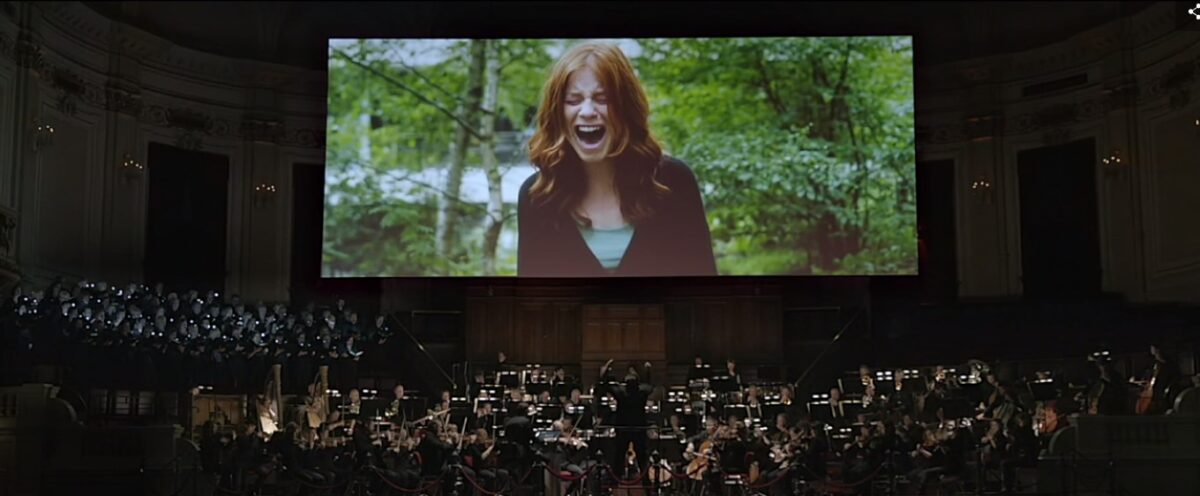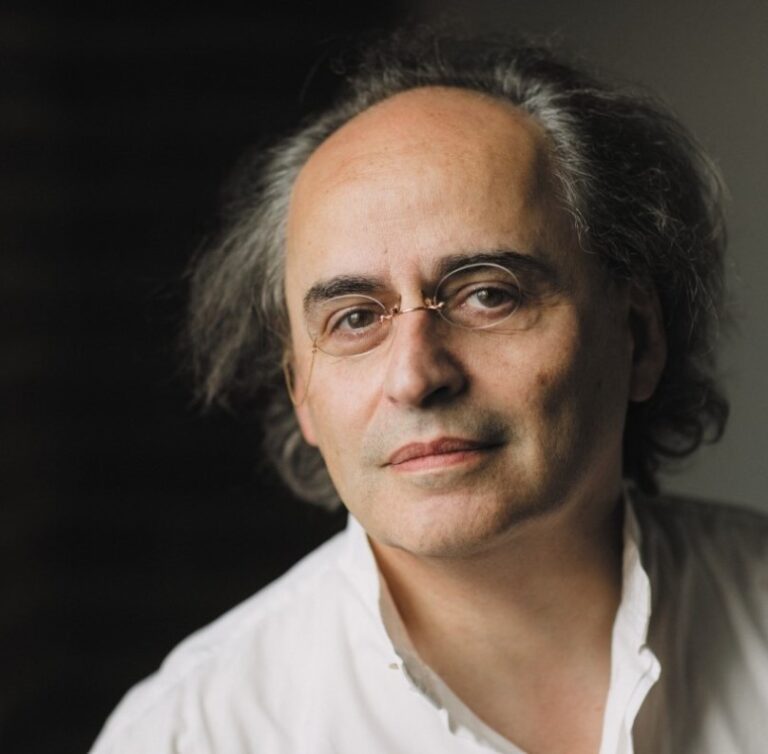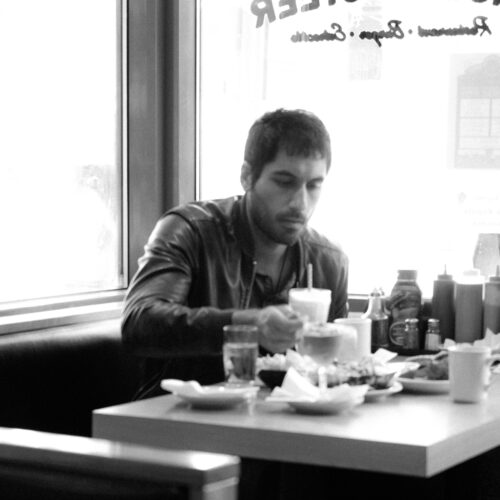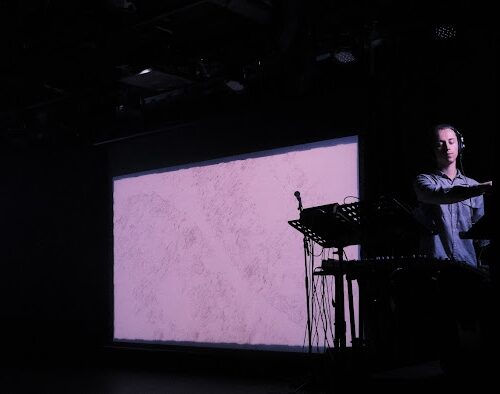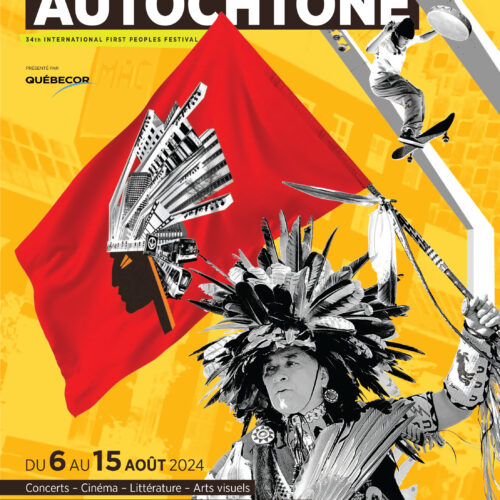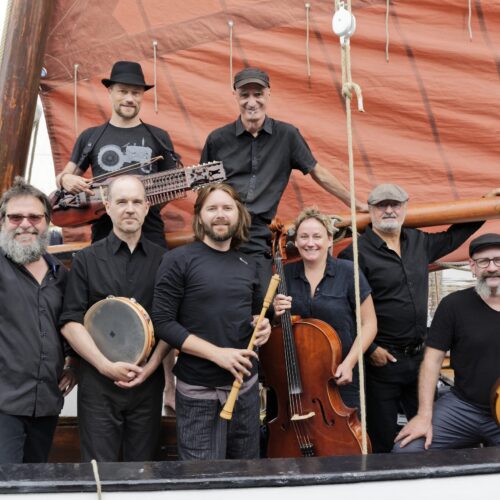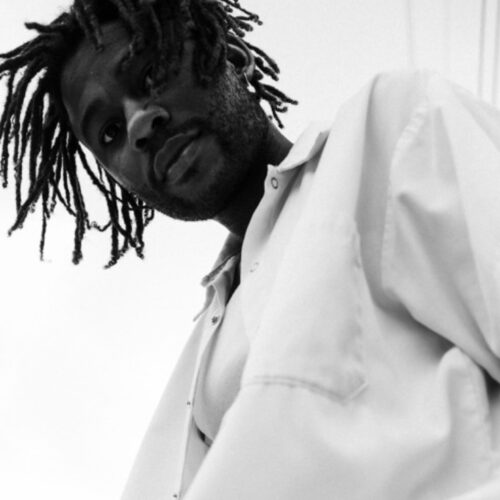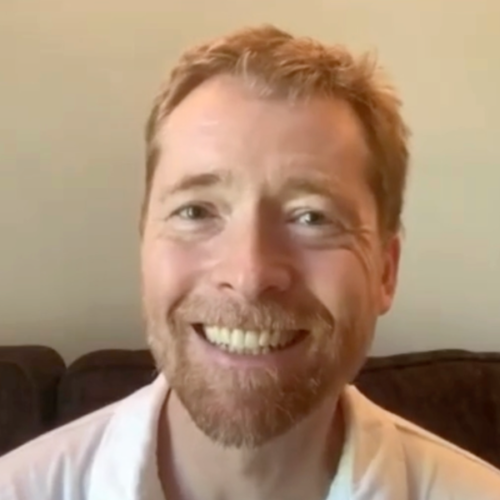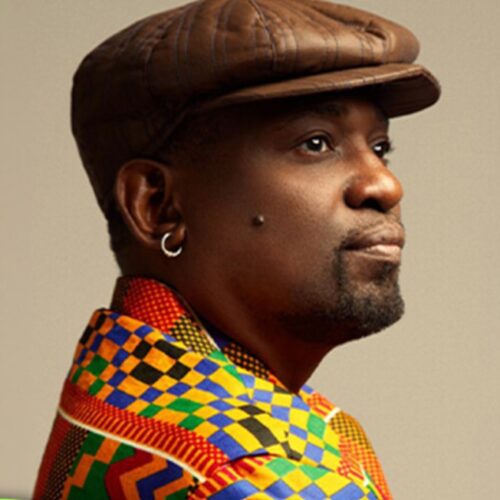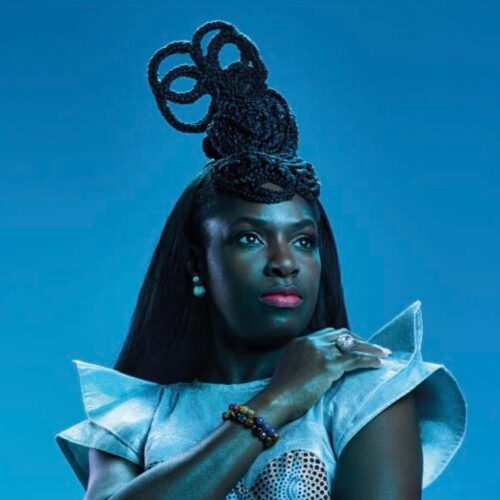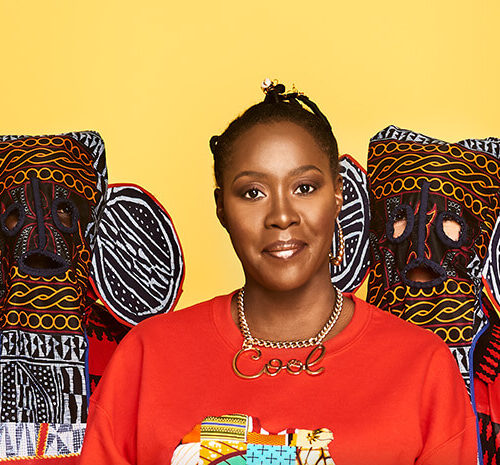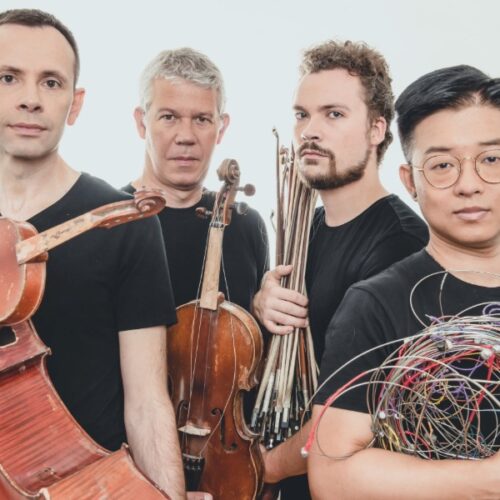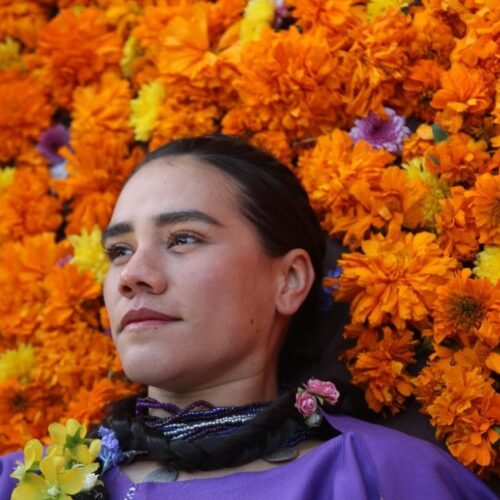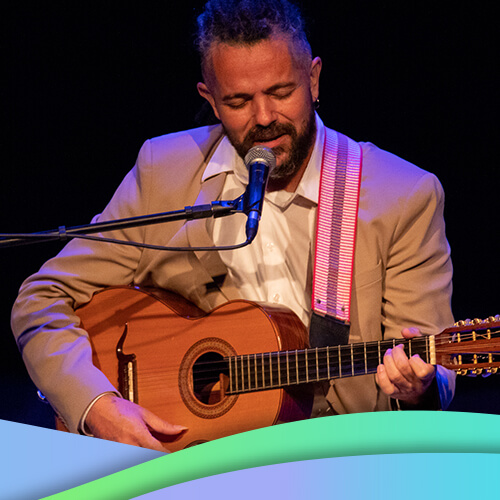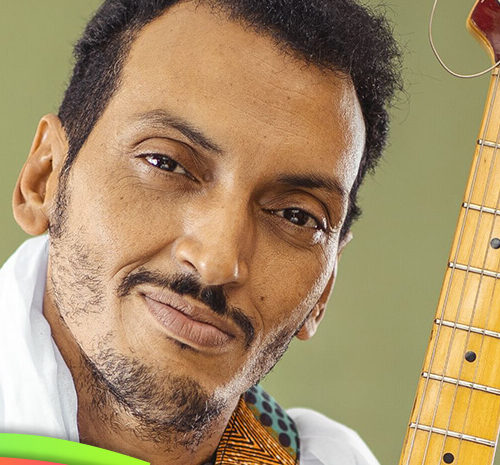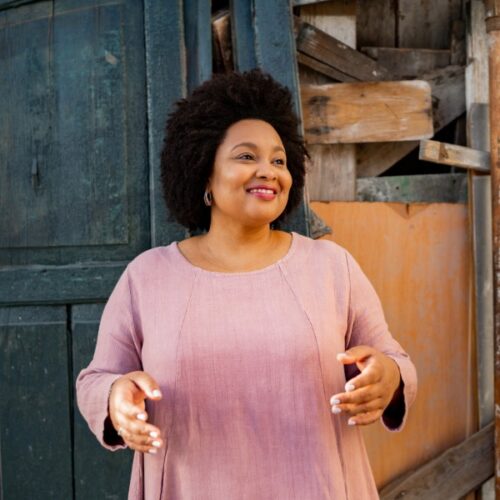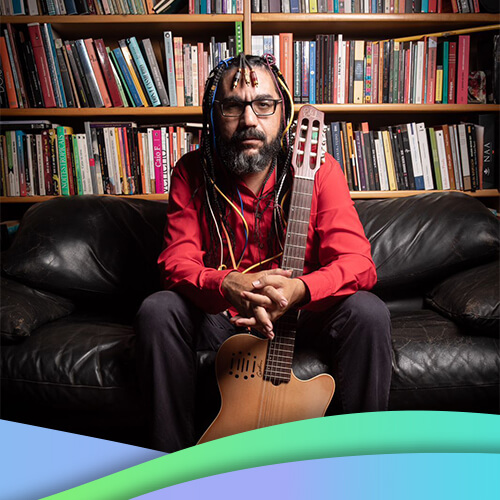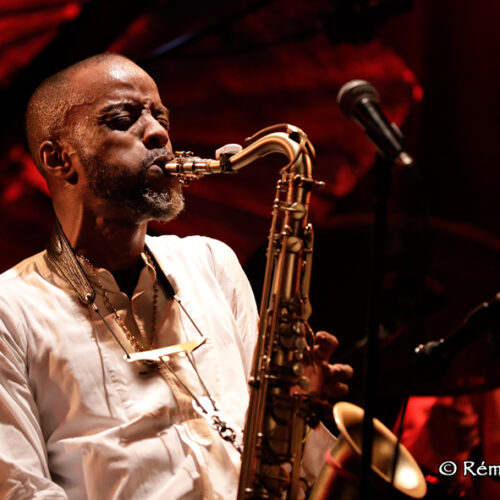Additional Information
Somewhere between classical opera, musical and cinema, Ariella is inspired by a novel of Ariella Kornmehl and a libretto by Thomas Beijer. This novel and libretto follow the path of a young woman who mourns her mother after she died in a tragic accident, then falls in love outside of her Orthodox Jewish entourage and has to deal with the mental health of some of her closed ones. In a Jewish context, this is a classic story of love and loss.
Conducted by Francis Choinière, Ensemble Classico-Moderne is performing Jaap Nico Hamburger’s ARIELLA, on Saturday at the Maison symphonique.
Born in Amsterdam in a Jewish family, Jaap Nico Hamburger is the composer in residence with Mécénat Musica in Montréal where he lives now. His body of work includes commissions for orchestra, opera, chamber music and solo works. His Chamber Symphony No. 2 ‘Children’s War Diaries’ was nominated for the Matthijs Vermeulen Award (2021) and received a JUNO nomination for Best Classical Composition of the Year (2022). In addition, he contributed work to an album nominated for ‘Best Classical Album of the Year’ (JUNOS 2023).
Hamburger started his musical education at the age of 3, he graduated from the Royal Sweelinck Conservatorium of Music in Amsterdam, with a soloist degree in piano. At the same time, he became a cardiologist and worked at many places in the world before emigrating to Canada in 2000.
PAN M 360 : So you’ve been reading a novel from this Dutch author and you thought at that time that was an ideal material for an opera ?
.
Jaap Nico Hamburger : Yes, actually, the book was published around 2000. Reading the book, I felt this was an opera, because it was a very dramatic story. And so I started thinking about recreating that novel or a similar story into an opera.
PAN M 360 : How did you manage to translate this into an opera?
Jaap Nico Hamburger : Ariella Kornmehl is one of the team of script writers for the opera. She’s sort of an artistic advisor on the process and Thomas Beijer is the librettist. In addition to that, we have collaboration with Lucas van Woerkum , who is the film director for Symphonic Cinema, a European program that recreates stories on traditional scores and reworks them into film. The four of us wrote out the story.
PAN M 360 : Why did I think this story had operatic qualities ?
Jaap Nico Hamburger : Because there’s a lot of drama in this story. I think that the main plot is two things. First of all, it’s a coming of age story. We see the transition of Ariella as a young girl at home, as a daughter, to being an independent woman in her own right. So we see the growth of a young girl into an independent woman. So it’s a typical coming of age story in that sense.The other aspect that I try to highlight in the adaptation of the novel and through the opera is the fact that early on in the story, the mummy in the family dies of a tragic accident.
And what we will visualize in the complete version of the opera is that everybody who’s alive in the family, so mainly the father, the two children and the lover of Ariella and a girlfriend, everybody who’s alive is on location in Montreal and Saint-Sauveur and surroundings, etc. But the soul of mummy is live on stage with the orchestra.
PAN M 360 : So the actual outcome is not a traditional opera.
Jaap Nico Hamburger : Exactly. It’s 90 minutes of film with everybody filmed on location in Montreal and surroundings. So there are 90 minutes of film and 90 minutes of music with a live orchestra below the screen. And the soul of mummy is live on stage and she comments on what happens and she advises the family. And when they plead for help and the memory and the grieving over the loss of Mummy, she’s actually there. So what the audience gets to see is a double reality of the people who are alive on film and the soul of Mummy, who’s actually life with the audience in the hall.
PAN M 360: Opera was the total experience on stage 200 years ago, but now we have other means to create this total show.
Jaap Nico Hamburger : Totally. So what we are blending, what we intend to blend here is modern cinematography, like Hollywood style movies, but with a live orchestra, so it’s the combination of film and a live concert.
PAN M 360 : Was it thought this way since the beginning?
Jaap Nico Hamburger : No. I created a first version and I thought we were ready. But it’s always like that in our lives… we plan something and God does something else. So I thought I had a complete version to go into theaters, but then COVID happened. And during COVID there was no way that we could actually achieve the original version. So that gave us the time to sit back; rethink it gave us the time to rewrite the story and develop this concept of using cinematography and blend that with a live concert, a sort of operatic cinema.
PAN M 360 : You’re talking about Hollywood style movie. What do you mean by Hollywood style?
Jaap Nico Hamburger : I mean actors with dialogue, filmed on location. And the only thing that is different in this film is that sometimes the actors who play out the drama will also sing a song at the same time that the orchestra score of the music is always there.
PAN M 360 : So it’s a sort of blend between musical and opera?
Jaap Nico Hamburger : Yeah, in a way.
PAN M 360 : As a composer, how could we describe your style ?
Jaap Nico Hamburger : That’s a difficult question to answer for me. Let me put it this way: the reason I write music, or the reason I do mostly anything in my life is to communicate with other people. I do it because I think the essence of humanity is communication. And so my formal education in music was as a concert pianist and I had a completely different type of career as a cardiologist.
PAN M 360 : It happens more and more often, science and music are clearly suitable!
Jaap Nico Hamburger : For me, those two things basically have a common denominator because helping other people as a doctor is also mostly about communication. There’s a technical part to it but to really help another person going through a phase of disease, it’s all about communication. So when I write music or when I publish what I write it is deliberately intended to be a vehicle for communication of a story, or of an opinion, or of a situation.
PAN M 360 : Have you been trained in composition?
Jaap Nico Hamburger : My education in music was as a pianist, not as a composer. I never studied composition at the academy It was totally instinctive in a way. I’ve been self educated by reading scores of the masters. So I did not go through formal training of this technique or that technique or this style or that style. So, depending on the story I wish to convey I use a certain musical technique. So that can be tonal, it can be romantic, it can be post-romantic, it can be atonal, it can be modal. It very much depends on the ingredients of the story needs. So I don’t know how to label my style.
PAN M 360 : That’s fine! When we don’t know how to label it’s a very good sign because labels are sometimes an easy and lazy way to try to understand music.
Jaap Nico Hamburger : Particularly this piece, because of the format, because of the use of film, because of the style of the libretto might come across very much as very romantic because it’s very emotional. I wish it appeals to the emotions of the audience. I think the ingredients are easy to identify with and so the language in Ariella is maybe late romantic.
PAN M 360: So you use any tools from any period of music history if they’re relevant.
Jaap Nico Hamburger: There’s another probably important musical influence with all the classic stuff in my life and that’s that for about ten years I had an R&B band! For example, with Ariella in the story, her younger brother starts when he’s ten and ends when he’s about 18 and I couldn’t imagine an 18-year-old struggling with anger and depression singing a Puccini aria. So his big aria is a rap song.
PAN M 360 : Have you been composing through your cardiologist career?
Jaap Nico Hamburger : Yes, kind of. I started my formal music education at the age of three which resulted in a situation where I could read music scores before I could read ABC. So my first reading was music reading. At the same time in Amsterdam, I went through the Royal Music Academy for piano and Medecine school. I did both studies at the same time in Amsterdam.
Then throughout my subsequent training as a cardiologist I was still a performing artist with concerts on stage when I transitioned into interventional cardiology, which is minimally invasive heart surgery. That’s when I stopped performing because then it became uncomfortable to do recitals and heart surgery. That was not really doable. That’s when I changed to composing, which I had been dabbling with in my R&B band.
But I was also composing serious art music, then at some point I thought I had done enough with medicine and I was very privileged in the sense that with my medical work I ended up working all over the world. I’ve done heart surgeries everywhere but the North Pole and the South Pole. So I thought I had done enough with that and I realised I definitely had not done yet enough with what I want to do in music. So I closed my practise to compose and make music full time.
PAN M 360 : Where you in Canada when you closed your practice?
Jaap Nico Hamburger : Yes. I came to Canada in 2000 by invitation of the University of British Columbia in Vancouver (UBC). And so I practiced there for 18 years, 2018. Then I closed my practice, focused full time on music as of then, and moved to Montreal.
PAN M 360 : How come have you moved from Vancouver to Montreal ?
Jaap Nico Hamburger : Two reasons : a personal one and a professional one. The personal one is I actually in 2017, I met the love of my life, she has a big job in Montreal. So that’s the most important reason. Together we raise five children.The professional reason is that from a classical music or an art point of view, Montreal is just amazing. I can’t say anything negative about Vancouver, but the art scene in Montreal, and especially also the classical music scene, are amazing!
When I announced I was making this transition, I was offered a position of composer in residence with Mécénat Musica, which gave me access to this huge community of top professional musicians and ensembles. I’ve been very lucky in that sense because that allows me to create for my community here and with the musicians here. And it’s been fantastic.
PAN M 360 : We can imagine it is so gratifying to achieve your musical dream after having served for humanity for such a long time. Now you heal people in another way now.
Jaap Nico Hamburger : I hope so !
PAN M 360 : With this cinematic opera and through this Ariella story, what is the message do you want to share with your audience ?
Jaap Nico Hamburger : You know, I worked all over the world. I met people from all different cultures, different traditions, different languages. And at some point it developed in me the impression that as human beings and in essence, we’re all the same. And beyond being all the same, I think we’re actually like if we go into quantum physics point of you, which I won’t do now, but from a quantum physics point of view, the energy that is at the base of our physical existence is actually shared. And so it’s not that we are all the same, I think we’re all one. And I think there is an eternal aspect to us which some people in some cultures call a soul.
PAN M 360 : In that sense, if you chose this novel and worked on it and transformed it, why have you chosen this specific story and what does it mean to you?
Jaap Nico Hamburger : The final message of this story and opera is that as you see this double reality of the living people in one corner and the soul of mummy in the other corner, but always being present, not really gone. If you’re quiet enough and you listen well enough, you can always feel the presence of the people you loved and lost.
ARIELLA IS PERFORMED BY ENSEMBLE CLASSICO-MODERNE, CONDUCTED BY FRANCIS CHOINIÈRE, MAISON SYMPHONIQUE, SATURDAY OCT 28, 7H30 PM. INFOS & TICKETS HERE
TOUR DATES
SATURDAY, OCTOBER 22, 2023 TORONTO, CANADA
SATURDAY, OCTOBER 28, 2023 MONTREAL, CANADA
SUNDAY, OCTOBER 29, 2023 QUEBEC CITY, CANADA
CONDUCTOR Francis Choinière
